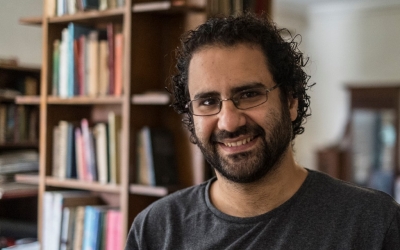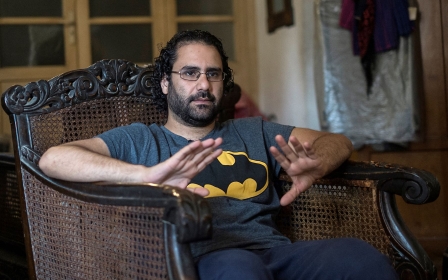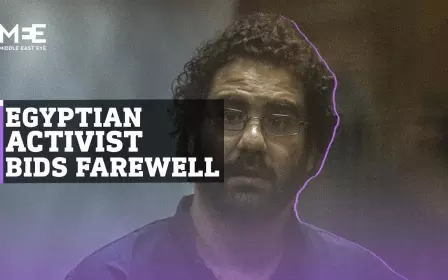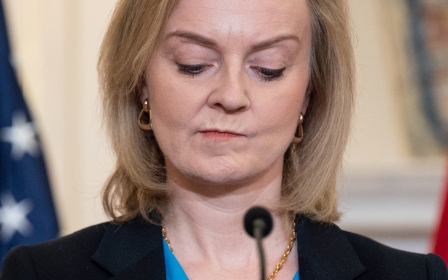Alaa Abd el-Fattah family says activist still on hunger strike, denies Egypt report
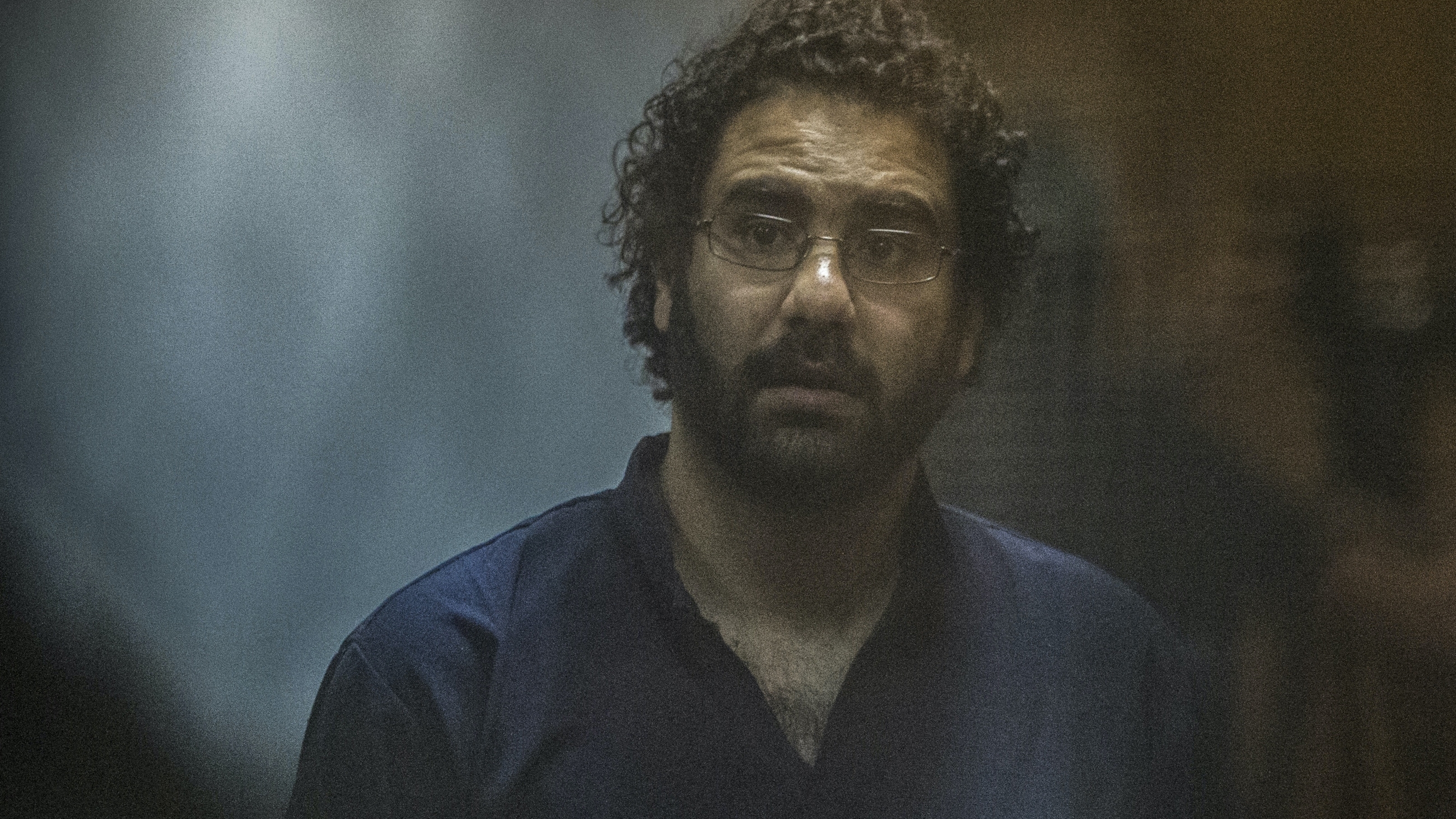
Imprisoned Egyptian-British political prisoner Alaa Abd el-Fattah is still on hunger strike, his family has said, denouncing claims to the contrary by a government-appointed human rights council.
A delegation from the National Council for Human Rights on Monday visited the Wadi el-Natrun prison where Abd el-Fattah is being detained, and said it had reviewed the medical reports of a number of prisoners, including the activist’s file.
The NCHR claimed that Abd el-Fattah’s report “indicates that his health is stable and vital signs are normal. He has received all the nutritional supplements allocated to him by the prison, in addition to receiving food and drinks provided by his family almost on a weekly basis.
“There are no reports of his hunger strike by the prison’s administration.”
Abd el-Fattah’s family has condemned the NCHR report, confirming that he is continuing with his hunger strike and his life is still in danger after 66 days of refusing food intake.
“The report falsely claims that Alaa has been eating and his medical reports are good, and that we, his family, without our knowledge, have been delivering him food every week,” Abd el-Fattah’s sister Mona Seif wrote in a post on Facebook.
The pro-democracy activist, who was an icon of the 2011 Egyptian revolution, started his strike on 2 April in protest against the Egyptian authorities' refusal to allow UK officials to meet with him and provide his basic rights.
His family has been increasingly worried about his deteriorating condition.
Abd el-Fattah’s mother Laila Soueif said the NCHR did not meet with her son and have instead chosen to believe allegations made by the prison’s administration, which refuses to recognise the hunger strike.
Soueif told Egyptian news outlet Darb that as far as she knows, Abd el-Fattah has not been medically examined since 18 May.
“As for whether or not Alaa is still on his hunger strike, the best response is an excerpt from one of his letters that his strike continues despite it not being documented in a [prison’s] record.”
'Till the end'
Abd el-Fattah was granted UK citizenship in April through his mother, who is also a British citizen.
His family said last month that the activist is willing to revoke Egyptian citizenship if that would lead to his release.
In recent years, a handful of dual nationals among the estimated 65,000 political prisoners in Egypt have been freed by President Abdel Fatteh el-Sisi's government after relinquishing their Egyptian citizenship.
Lord Tariq Ahmad of Wimbledon, the UK’s minister of state for North Africa, has revealed that he raised the case of Abd el-Fattah with Egypt's foreign minister, Sameh Shoukri, on 21 May, and with the Egyptian ambassador to London.
Ahmad said the British embassy in Cairo was in touch with Egyptian authorities about the detainee.
Abd el-Fattah's family has been lobbying the UK government to intervene in his case. Mona Seif told Middle East Eye last month that the UK could do more to secure her brother’s release.
“Alaa…has decided to take this hunger strike till the end," said Seif.
"If Britain had been doing enough, Alaa would be here with us. Britain is capable of resolving this issue.”
Middle East Eye delivers independent and unrivalled coverage and analysis of the Middle East, North Africa and beyond. To learn more about republishing this content and the associated fees, please fill out this form. More about MEE can be found here.


